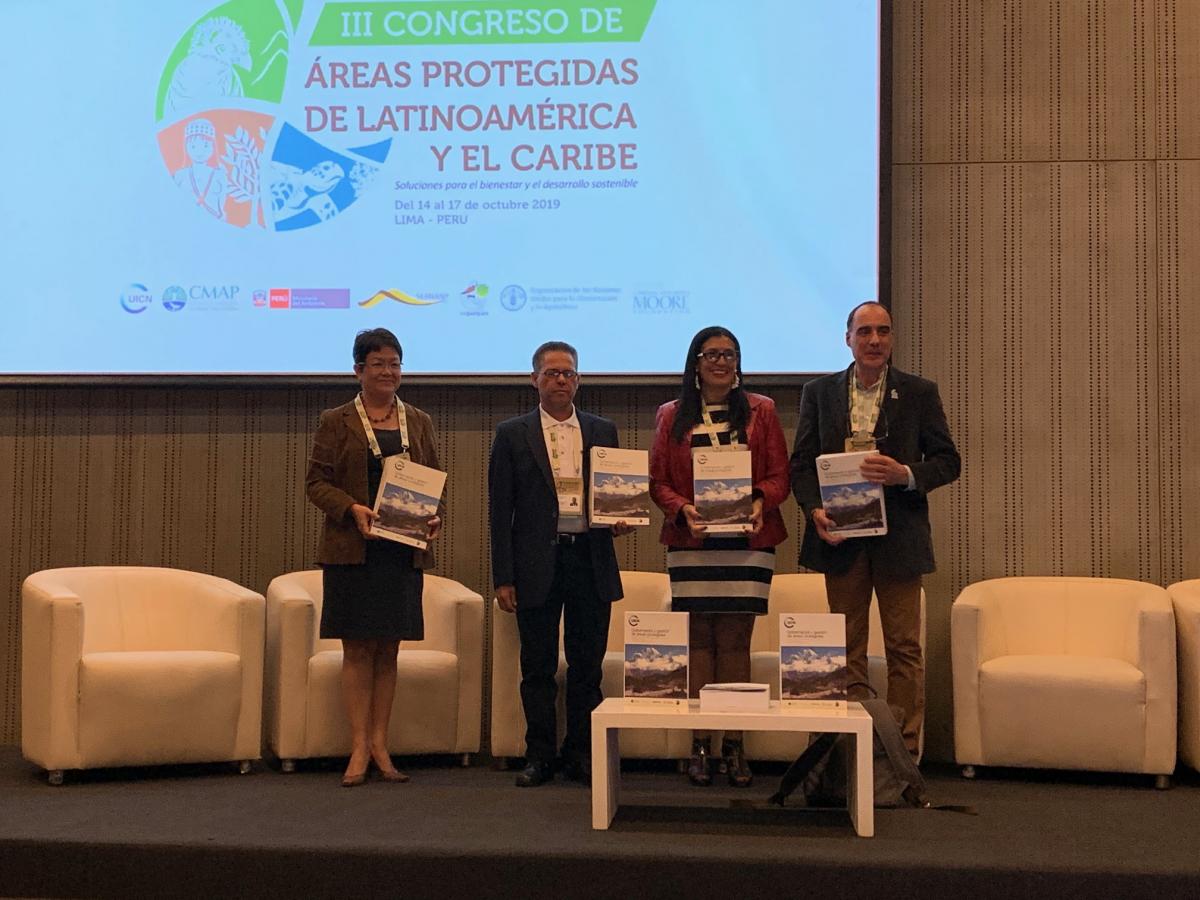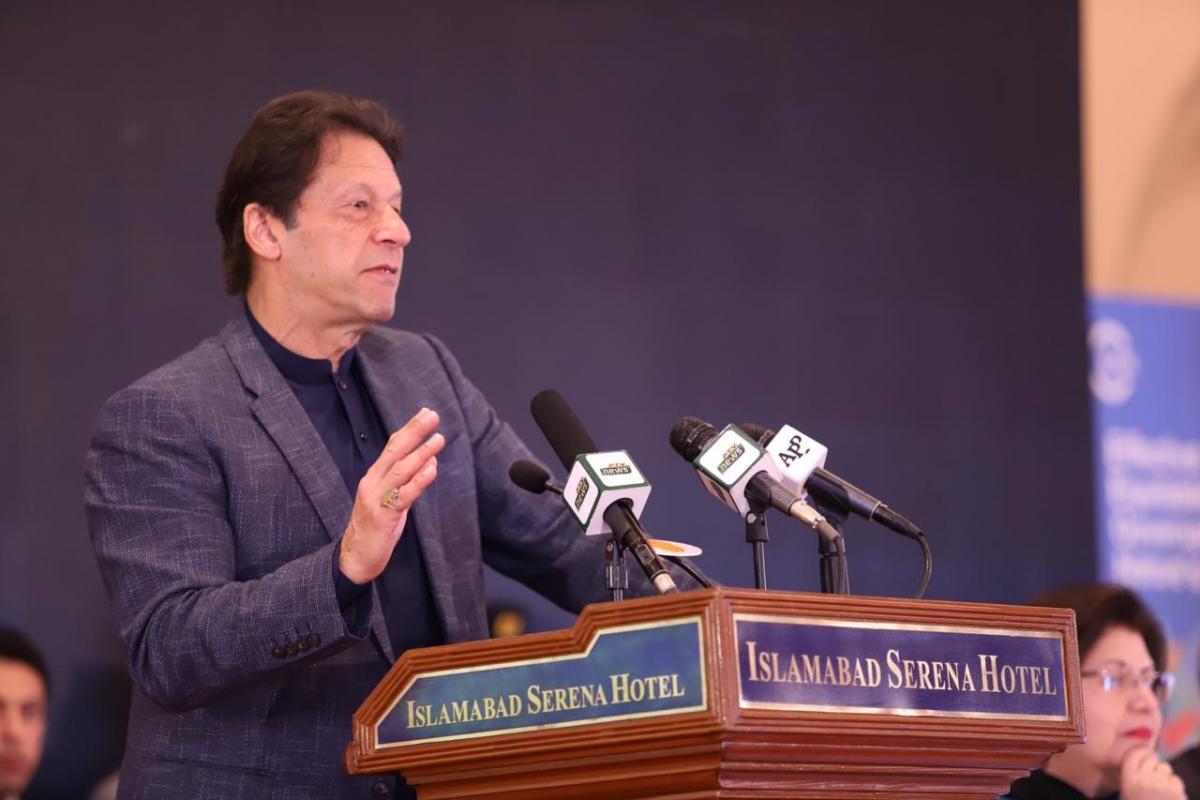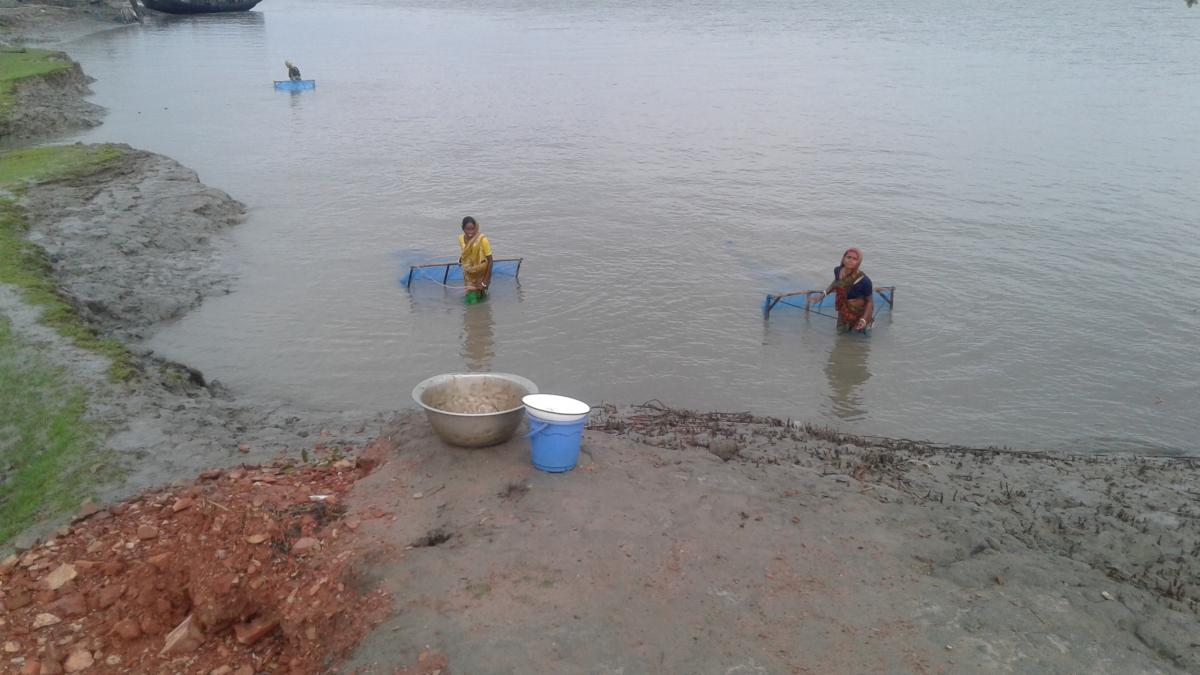Cookstoves for forest conservation in Teknaf, Bangladesh
Teknaf Wildlife Sanctuary is crucial habitat for many species, but until recently, the forests of the peninsula and the mangroves along the bank of Naf River were the only sources of fuel wood for the nearby villages. The increased prevalence of wood cutting resulted in the severe degradation of the forest, requiring a strategy to reduce the dependency of the villagers on the forest for fuel wood and other resources.
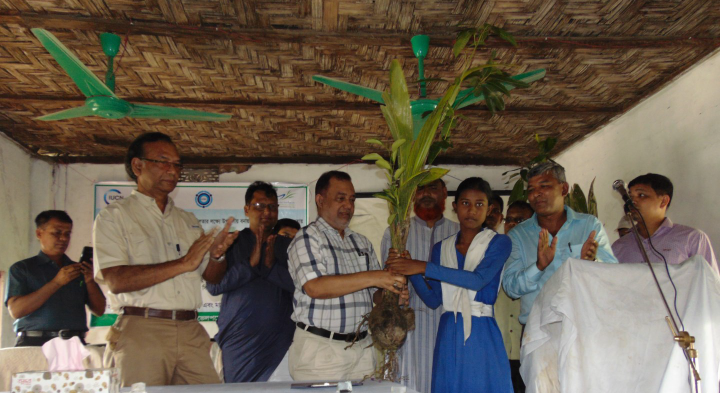
A student from Hnila Girl's School accepts a sapling from Khursid Alam (CODEC) and Ishtiaq Uddin Ahmad (IUCN)
Photo: © Shital Kumar Nath / CODEC
With support from Mangroves for the Future (MFF), the Community Development Centre (CODEC), a local NGO, has introduced the bhandhu chula – an improved variety of cookstove – to the villages of Rakahyan (Chowdhury) Para, Jalia Para and Natmura Para of Teknaf’s Hnila sub-district.
Less fuel-intensive than traditional cookstoves, bhandhu chulas have reduced the monthly consumption of wood by 70kg per family. As part of the project, CODEC has also distributed 14,000 saplings of indigenous tree species for local families to plant and use to meet future fuel wood needs. These saplings are expected to provide each family with over 80kg of fuel wood per month, as well as fruit for household consumption.
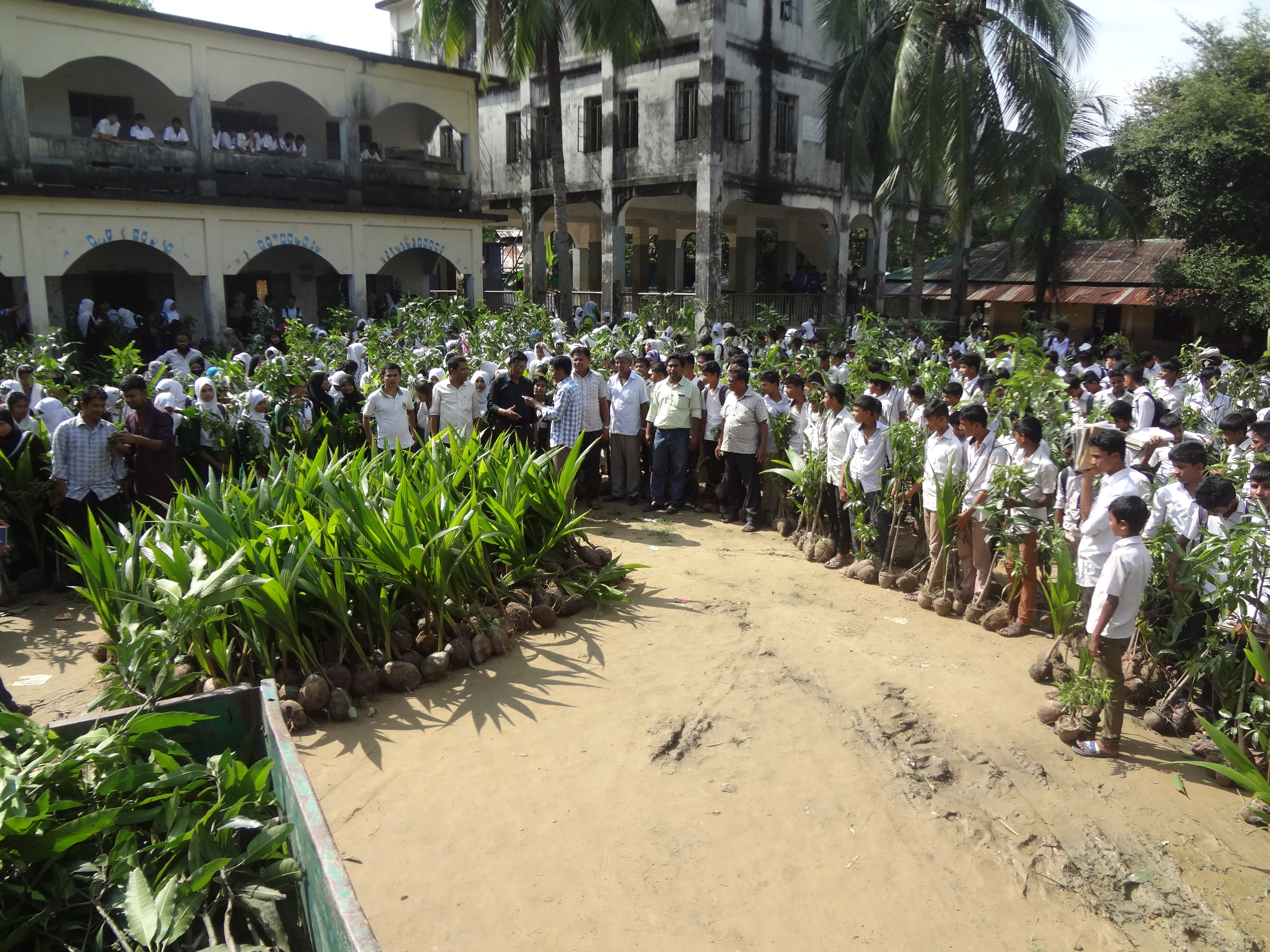 Palm saplings being distributed to members of participating communities in Hnila, Teknaf
Photo: © Shital Kumar Nath / CODEC
Palm saplings being distributed to members of participating communities in Hnila, Teknaf
Photo: © Shital Kumar Nath / CODEC
The bhandhu chula is less time-consuming to use and produces much less smoke than traditional cookstoves, thus presenting less harm to women's health. The improved cookstoves have saved women at least 24 days of cooking time per year. A family of five also saves over US $90 annually and experiences fewer health problems than those who have not yet made the transition. The use of trees provided by CODEC for both firewood and fruit also reduces pressure on the surrounding forests.
“I have been using the bhandhu chula in my kitchen for almost a year and have not experienced any issues with it,” said Mrs Joyoti, from Jalia Para. “It does not produce smoke, and so no black soot layer is formed outside of the pots. My respiratory disease has also gotten better. My fuel costs have dropped by half, and also my cooking time has been reduced.”
At first, it was not easy to motivate the villagers to replace their old stoves with bhandhu chulas. “When the project first started, people were sceptical,” said Mr Shital Kumar Nath, a member of CODEC’s project staff. They had no previous experience with the improved cookstoves, and no reason to trust that they would be beneficial.
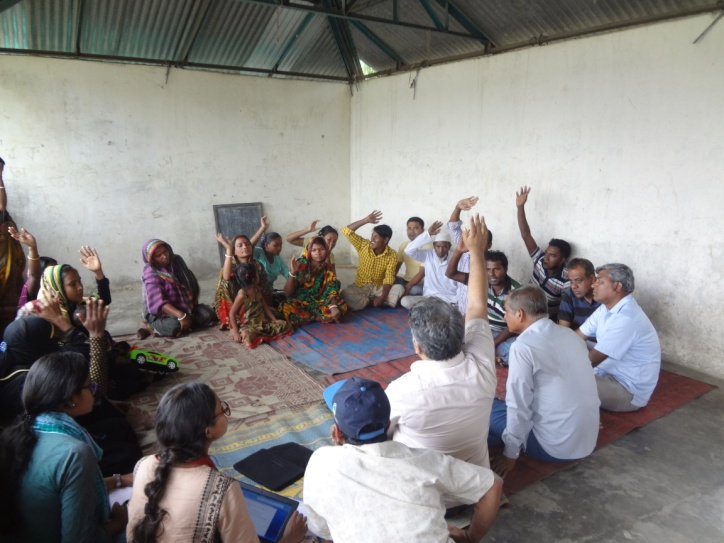 Members of the Jalia Para community vote in favour of improved cookstoves
Photo: © Shital Kumar Nath / CODEC
Members of the Jalia Para community vote in favour of improved cookstoves
Photo: © Shital Kumar Nath / CODEC
To convince the villagers to try out the bhandhu chula, CODEC conducted door-to-door visits, provided the cookstoves for free, and explained the many benefits of the stoves and the project. These personal interactions proved to be effective, with about 3% of households agreeing to participate in the project. Within a year, another 64% of households had followed their neighbours’ lead. “In the end, people were asking us to extend the duration of the project,” said Shital.
The introduction of bhandu chulas to 410 households and the planting of trees have saved 753 metric tonnes of fuel wood that would have been collected throughout the year, and saved each family around US $92.The lives of the residents of the three villages have also been transformed by the health and financial benefits of the improved cookstoves.
Mangroves for the Future (MFF) is a partnership-based regional initiative which promotes investment in coastal ecosystem conservation for sustainable development. MFF focuses on the role that healthy, well-managed coastal ecosystems play in building the resilience of ecosystem-dependent coastal communities in Bangladesh, Cambodia, India, Indonesia, Maldives, Myanmar, Pakistan, Seychelles, Sri Lanka, Thailand and Viet Nam. The initiative uses mangroves as a flagship ecosystem, but MFF is inclusive of all types of coastal ecosystem, such as coral reefs, estuaries, lagoons, sandy beaches, sea grasses and wetlands. MFF is co-chaired by IUCN and UNDP, and is funded by Danida, Norad, and Sida and the Royal Norwegian Embassy in Thailand.
